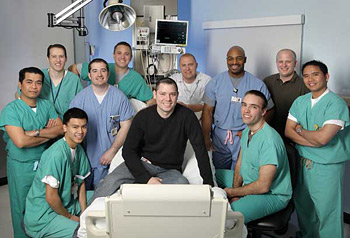Historically, Nursing has been viewed as a female-dominated profession, but a noticeable shift is occurring. The number of men entering the Nursing field has significantly increased in recent years. This trend reflects a broader recognition of Nursing as a versatile and rewarding career for individuals of all genders.
The Rise of Male Nurses
Over the past few decades, the percentage of male Nurses in the U.S. has steadily risen. In 1970, only 2.7% of Registered Nurses were men. By 2023, that figure had climbed to nearly 13%, with certain specialties, such as Nurse Anesthetists, showing even higher representation. This growth indicates a gradual breakdown of gender stereotypes surrounding caregiving roles.
Why Men Choose Nursing
Numerous factors are influencing men to view Nursing as a viable career path. A key reason is the assurance of job security, which is particularly attractive in times of economic instability. The healthcare sector, and Nursing specifically, is renowned for its stability due to the ongoing demand for skilled professionals to care for an aging population and tackle various health issues.
Beyond job security, Nursing provides competitive salaries often paired with comprehensive benefits packages, making it an appealing choice for those seeking financial stability and growth. According to the Bureau of Labor Statistics, as of May 2023, the median wage for Registered Nurses was $86,070 per year, or $41.38 per hour.
The Nursing field offers opportunities for career advancement, presenting a clear trajectory for individuals who are ambitious and eager to enhance their education and skills. Nurses have the option to pursue advanced degrees and certifications, enabling them to specialize in areas such as Nurse practitioner roles, leadership positions, or even academic and research opportunities.
There is a wide array of Nursing specialties—from critical care, to informatics. This diversity within the profession allows Nurses to customize their careers to align with their interests and strengths, ensuring a rewarding and dynamic work experience.
Impact on the Profession
The increasing presence of men in Nursing contributes to the profession's diversity, which enhances team dynamics and patient care. Diverse perspectives allow healthcare teams to address a broader range of patient needs and foster an inclusive environment. Patients, too, benefit from this diversity, as some may feel more comfortable discussing sensitive issues with a Nurse of a specific gender.
Challenges Remain
Despite progress, men in Nursing still face challenges, including lingering stereotypes and assumptions about their motivations for entering the field. Addressing these biases is crucial to fostering an equitable and welcoming workplace for all. Some stereotypes of men in Nursing include:
Failed Doctor Aspiration: Assumes male Nurses became Nurses because they couldn't get into medical school, ignoring that Nursing is a distinct and purposeful profession.
Limited Empathy: Suggests male Nurses are less compassionate or nurturing compared to female Nurses, despite many excelling in patient care.
Only Work in Specialized Areas: Stereotypes male Nurses as only working in high-intensity specialties like emergency rooms, critical care, or surgery.
Physically Strong but Emotionally Distant: Suggests male Nurses are mainly valued for their physical strength, for tasks like lifting patients, rather than their emotional or clinical skills.
Increased Authority: Assumes male Nurses automatically have more authority or are leaders, based solely on gender, even when they have the same or less experience than female colleagues.
Sexual Orientation Assumptions: Associates male Nurses with specific sexual orientations, often unfairly and inaccurately stereotyping their personal lives.
Moving Forward
As the Nursing profession continues to evolve, efforts to promote gender diversity should remain a priority. By breaking down outdated stereotypes and emphasizing the value men bring to Nursing, the field can attract a wider range of talent, ultimately improving patient care.
Men in Nursing represent more than just a growing statistic; they are a testament to the profession's adaptability and inclusivity in an ever-changing healthcare landscape.


 Men become Nurses for the same reason women do, to take care of people. And even though Male Nurses are becoming more common, they still face constant stereotyping on the job.
Men become Nurses for the same reason women do, to take care of people. And even though Male Nurses are becoming more common, they still face constant stereotyping on the job. The Washington Center for Equitable Growth
The Washington Center for Equitable Growth 
 Even though women comprise an estimated
Even though women comprise an estimated 
 Two men discuss their career paths in a female dominated work environment, Nursing. Brian Medley and Zain Rehman talk Nursing shortages, specialty options, salary, and more. Read below to find out more about the interview.
Two men discuss their career paths in a female dominated work environment, Nursing. Brian Medley and Zain Rehman talk Nursing shortages, specialty options, salary, and more. Read below to find out more about the interview.  Educational systems should be increasing the diversity of its students to create a workforce that is prepared to meet the demands of diverse populations. Since the 70's there has been an increase of male Nurses by 200%. Stereotypes of professional gender rolls are being broken down.
Educational systems should be increasing the diversity of its students to create a workforce that is prepared to meet the demands of diverse populations. Since the 70's there has been an increase of male Nurses by 200%. Stereotypes of professional gender rolls are being broken down.
 The
The  or
or